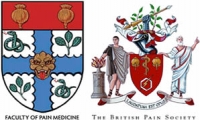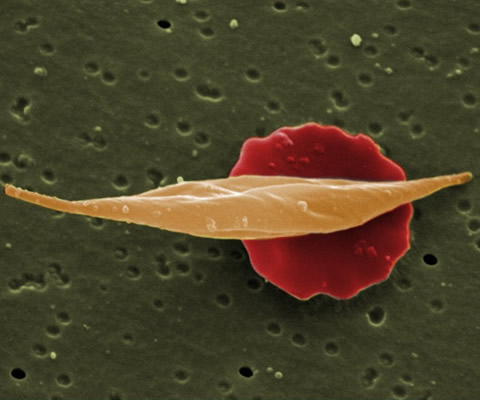Sickle Cell Pain course



This session describes the causes, presentation and management of pain in sickle cell disease.
Learning Objectives
By the end of this session you will be able to:
- Describe the pathophysiology of acute sickle cell crisis
- Explain how multimodal analgesia is used in acute sickle cell crisis
- Identify the side-effects of strong opioid analgesia in acute sickle cell crisis
- Suggest strategies to minimize the potential risk of strong opioid side-effects
- Explain how other common pain syndromes are managed in sickle cell disease
Sickle cell disease (SCD) affects the haemoglobin in red blood cells causing them to become ‘sickle-shaped'.
Paul is the clinical lead for haemoglobinopathies (including sickle cell disease) at Barts Health NHS Trust and the East London and Essex Clinical Haemoglobinopathy Network. He trained in medicine at Oxford University and in haematology at the Royal Free Hospital, University College Hospital and Great Ormond Street Hospital in London. He completed a doctorate of Medicine while working at The Royal Free Hospital School of Medicine.
He has held his current consultant post since 1998, during which he has established a large service for children and adults with Sickle Cell Disease. He has developed oral-based protocols for control of acute sickle pain, and has designed and implemented clinical trials for systematic evaluation of pain management in sickle cell disease.
Paul has contributed to evidence-based acute pain guidelines in sickle cell disease, is co-author of Sickle Cell Disease in Clinical Practice (Springer, 2015).
Paul is a content author for the e-PAIN project.


- Age-related Macular Degeneration for GPs
- Posted By Macular Disease Foundation Australia
- Posted Date: 2025-01-01
- Location:Online
- Macular Disease Foundation Australia (MDFA) has launched free CPD courses for general practitioners ...
- Acute Medicine | Neurology | Stroke differential d...
- Posted By eIntegrity Healthcare e-Learning
- Posted Date: 2025-01-01
- Location:Online
- This session covers potential causes of ‘stroke mimics’ seen more commonly in younger patients.
- Acute Medicine | Neurology | Definition of stroke
- Posted By eIntegrity Healthcare e-Learning
- Posted Date: 2025-01-01
- Location:Online
- This session defines and describes stroke using current guidelines. It also makes the distinction between stroke, transient ischaemic attack (TIA) and brain attack.
- Acute Medicine | Neurology | Chronic cord compress...
- Posted By eIntegrity Healthcare e-Learning
- Posted Date: 2025-01-01
- Location:Online
- This session outlines the format of a structured neurological examination in the context of a patient presenting with a fall.
- Acute Medicine | Medicine of the elderly | Investi...
- Posted By eIntegrity Healthcare e-Learning
- Posted Date: 2025-01-01
- Location:Online
- This session covers the investigation and management of delirium precipitated by urinary tract infection (UTI), including risk factors and specialist clinical assessment.







